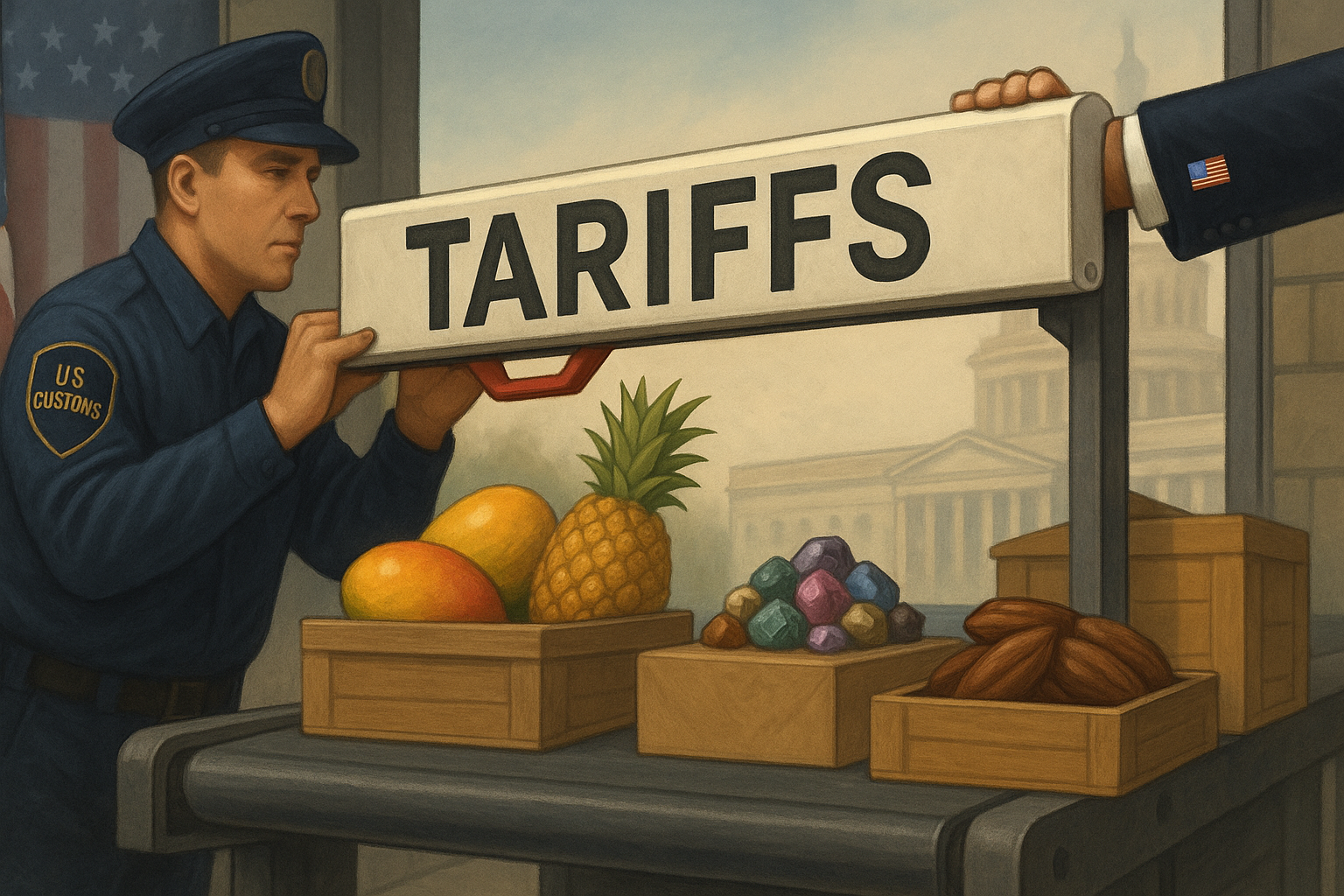The Biden administration is mulling over tariff reductions on products America literally cannot produce domestically. Which, when you think about it, is kind of a no-brainer.
I mean, seriously—we've been charging extra for stuff we couldn't possibly make here anyway? It's economic self-flagellation at its finest.
According to the Wall Street Journal, the White House is considering lifting import taxes on "products that cannot be grown, mined, or naturally produced in the United States." This potential policy shift represents one of those rare moments when economic common sense might actually prevail over political theatrics.
Let's be honest about tariffs. They exist in this weird limbo between actual trade policy and chest-thumping economic nationalism. The theory goes that they protect domestic industries from foreign competition. But here's the rub—if there's no domestic industry because, y'know, we CANNOT physically produce something here, what exactly are we protecting?
Nothing. Nada. Zilch.
We're just making imports more expensive for American businesses and consumers. For... reasons?
I've been covering trade policy since the Trump administration first rolled out its tariff bonanza, and I've witnessed what economists call the "invisible factory fallacy" play out repeatedly. That's the bizarre tendency of policymakers to act as if potential domestic production exists when it demonstrably doesn't. "Just tax those Chinese minerals enough, and surely someone will discover a massive deposit under Nebraska!" (Spoiler alert: they won't.)
The timing here isn't accidental. With inflation worries still hanging around and an election looming, the administration is scrambling for ways to ease consumer costs without triggering new price pressures. Tariff cuts fit the bill perfectly—they lower prices directly without stimulating additional demand.
But the devil's in the details, as always. What exactly qualifies as something that "cannot be grown, mined, or naturally produced" here? Are we talking strictly about physical impossibility (minerals that don't exist in US soil) or economic infeasibility (stuff that theoretically could be made here but at wildly uncompetitive costs)?
That zone between "absolutely impossible" and "just really impractical" is where the policy battles will rage.
Look, it's worth noting that the Biden team has largely maintained the tariff architecture it inherited from Trump. This suggests we're looking at pragmatic tinkering rather than some grand rethinking of American trade policy.
Still, there's something refreshing about even this modest step toward trade rationality. In conversations with several trade policy experts last week, I heard repeated variations of "It's about damn time."
For consumers, the impact might be modest but welcome—potentially lower prices on certain imports at a time when every dollar counts.
The broader question—one that probably won't be answered anytime soon—is whether this represents the first crack in America's recent infatuation with tariff walls. If we're willing to acknowledge that taxing imports of things we cannot produce makes little sense... well, might we eventually question tariffs on things we simply choose not to produce efficiently?
Probably getting ahead of ourselves there. Baby steps.
For now, let's just appreciate the modest wisdom of not taxing the impossible. Sometimes, that's as good as it gets in Washington.
